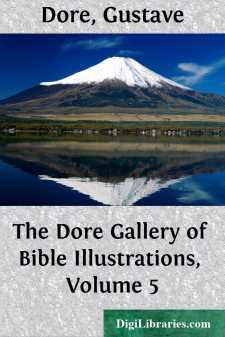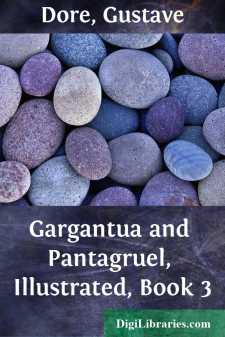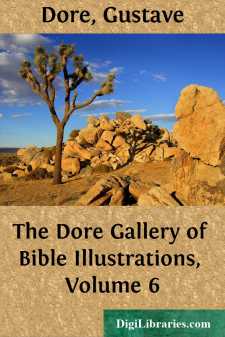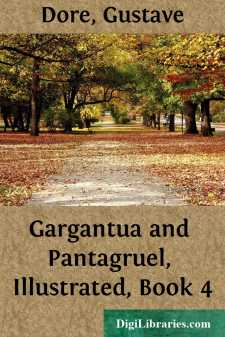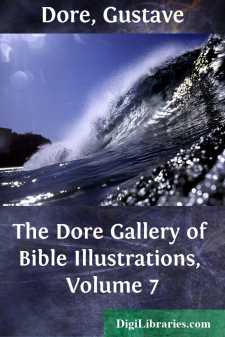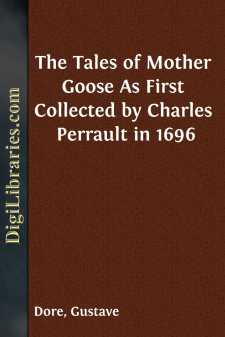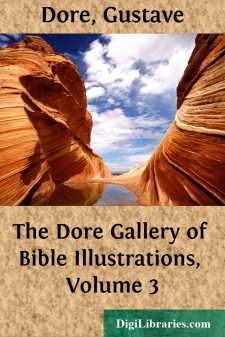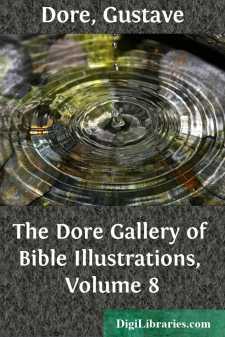Categories
- Antiques & Collectibles 13
- Architecture 36
- Art 48
- Bibles 22
- Biography & Autobiography 813
- Body, Mind & Spirit 142
- Business & Economics 28
- Children's Books 17
- Children's Fiction 14
- Computers 4
- Cooking 94
- Crafts & Hobbies 4
- Drama 346
- Education 46
- Family & Relationships 57
- Fiction 11829
- Games 19
- Gardening 17
- Health & Fitness 34
- History 1377
- House & Home 1
- Humor 147
- Juvenile Fiction 1873
- Juvenile Nonfiction 202
- Language Arts & Disciplines 88
- Law 16
- Literary Collections 686
- Literary Criticism 179
- Mathematics 13
- Medical 41
- Music 40
- Nature 179
- Non-Classifiable 1768
- Performing Arts 7
- Periodicals 1453
- Philosophy 64
- Photography 2
- Poetry 896
- Political Science 203
- Psychology 42
- Reference 154
- Religion 513
- Science 126
- Self-Help 84
- Social Science 81
- Sports & Recreation 34
- Study Aids 3
- Technology & Engineering 59
- Transportation 23
- Travel 463
- True Crime 29
The Dore Gallery of Bible Illustrations, Volume 5
by: Gustave Dore
Description:
Excerpt
ISAIAH.
Isaiah (in Hebrew, Yeshayahu, "Salvation of God"), the earliest and most sublime of the four greater Hebrew prophets, was the son of Amoz (2 Kings xix, 2-20; Isaiah xxxvii, 2), and he uttered his oracles during the reigns of Uzziah, Jotham, Ahaz, and Hezekiah, kings of Judah. The dates of his birth and death are unknown, but he lived from about 760 B.C. to about 700 B.C. He was married and had three sons—the children referred to in Isaiah viii, 18; and he appears to have resided near Jerusalem.
But by most competent critics it is now held that the last twenty-seven chapters (40-66) of the book bearing his name were the work, not of the prophet, but of a later writer who is commonly styled the second or Deutero-Isaiah. In this portion of the book, Cyrus, who was not born till after 600 B.C., is mentioned by name (Isaiah, xliv, 28; xlv, i); and events which did not take place till a century after the prophet's death are referred to as happening contemporaneously with the writer's account of them. The style of these last twenty-seven chapters, also, is different, and the tone is more elevated and spiritual.
Dore's ideal portrait is more suited to the second or pseudo-Isaiah, than to the real one.
Therefore thus saith the Lord concerning the king of Assyria, He shall not come into this city, nor shoot an arrow there, nor come before it with shield, nor cast a bank against it. By the way that he came, by the same shall he return, and shall not come into this city, saith the Lord. For I will defend this city, to save it, for mine own sake, and for my servant David's sake.
And it came to pass that night that the angel of the Lord went out, and smote in the camp of the Assyrians an hundred fourscore and five thousand: and when they arose early in the morning, behold, they were all dead corpses.
So Sennacherib king of Assyria departed, and went and returned, and dwelt at Nineveh. And it came to pass, as he was worshipping in the house of Nisroch his god, that Adrammelech and Sharezer his sons smote him with the sword: and they escaped into the land of Armenia. And Esar-haddon his son reigned in his stead.—2 Kings xix, 32-37
BARUCH.
And it came to pass in the fourth year of Jehoiakim the son of Josiah king of Judah, that this word came unto Jeremiah from the Lord, saying, Take thee a roll of a book, and write therein all the words that I have spoken unto thee against Israel, and against Judah, and against all the nations, from the day I spake unto thee, from the days of Josiah, even unto this day. It may be that the house of Judah will hear all the evil which I purpose to do unto them; that they may return every man from his evil way; that I may forgive their iniquity and their sin.
Then Jeremiah called Baruch the son of Neriah: and Baruch wrote from the mouth of Jeremiah all the words of the Lord, which he had spoken unto him, upon a roll of a book. Jeremiah xxxvi; 1-4.
The word that Jeremiah the prophet spake unto Baruch the son of Neriah, when he had written these words in a book at the mouth of Jeremiah, in the fourth year of Jehoiakim the son of Josiah king of Judah, saying, Thus saith the Lord, the God of Israel, unto thee, O Baruch; thou didst say, Woe is me now!...


